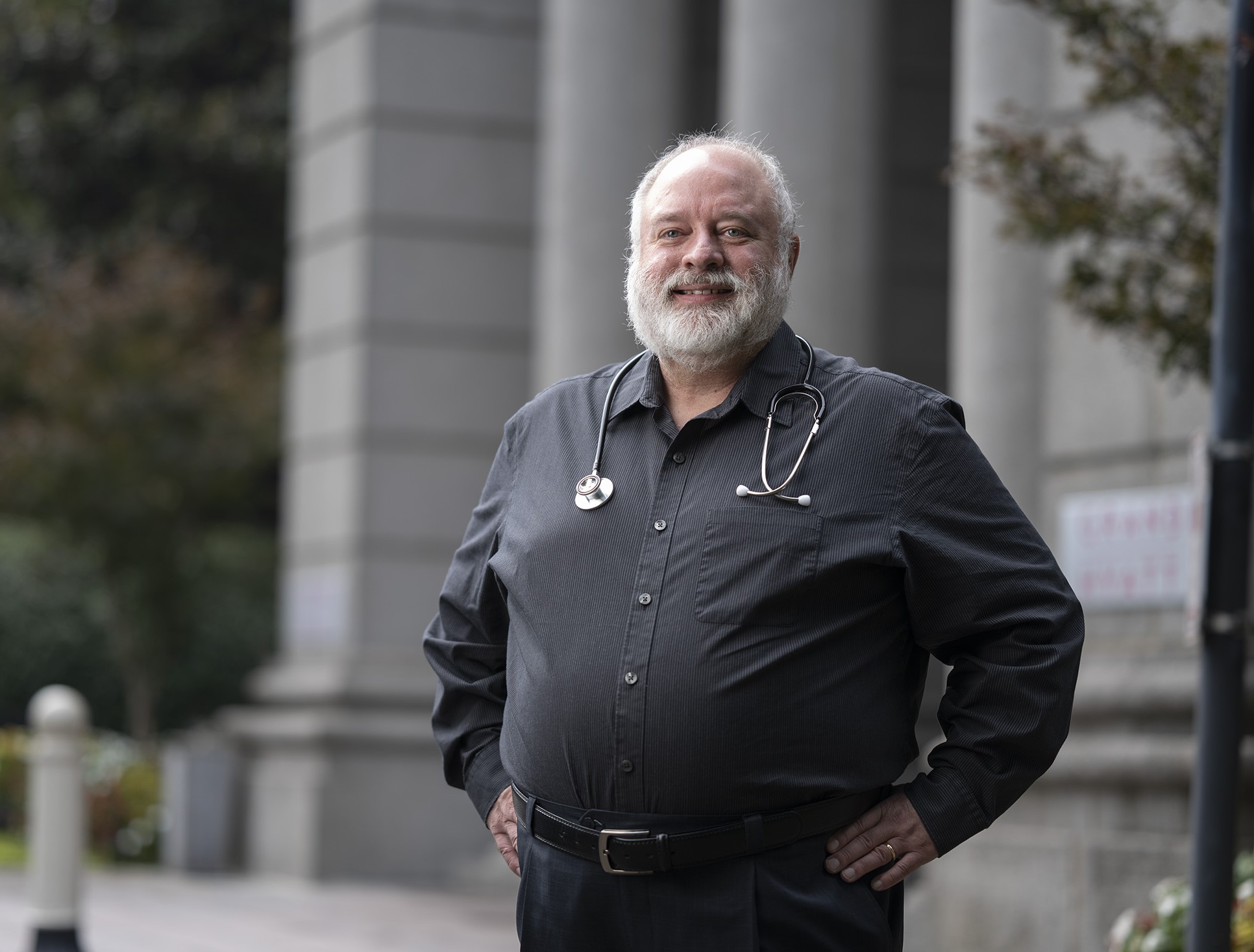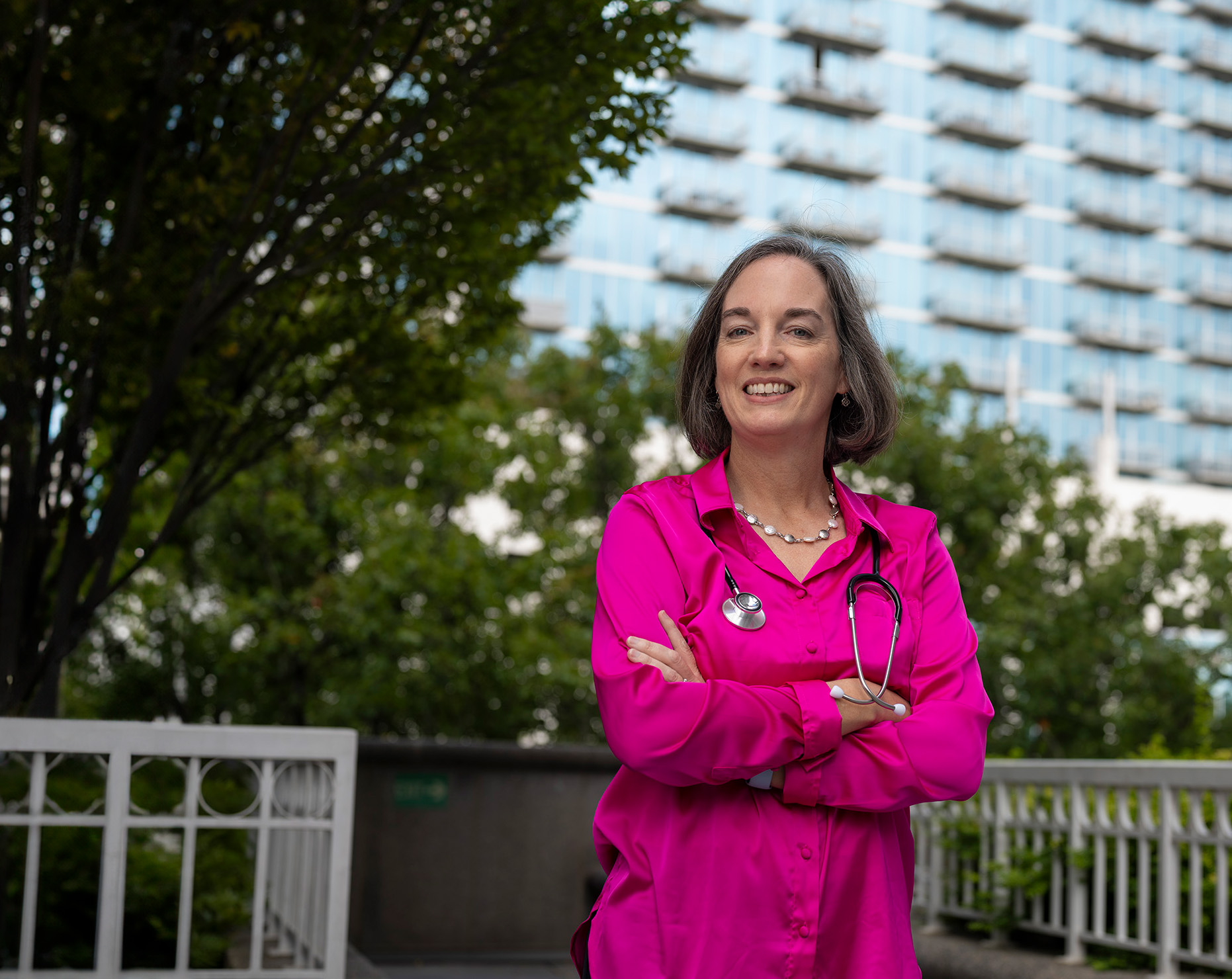Bringing a data-informed approach to patient care and enhancing physician-to-physician collaboration are two key principles at the heart of the agilon health model. In this conversation, Dr. Kimberly Hudson — an agilon physician partner with The Lexington Clinic in Lexington, Kentucky — shares how these dynamics are driving positive change in her practice, and in the health care sector at large.
agilon health: We live in a data-centric era, yet many health care organizations have struggled to keep pace. How has the role of data in patient care changed since your practice became an agilon partner?
Dr. Hudson: The agilon platform and the data visibility it provides have truly enabled a paradigm shift. In the past, we were like most practices, trying to succeed in a fee-for-service (FFS) world that just doesn’t set primary care physicians up for success. We were basically reinventing the wheel every year with small adjustments, trying to make things work in a way that was financially sustainable. And that struggle was very real. Today it’s different. By providing a data-backed foundation of insight into our patients’ overall health picture, the agilon platform gives us a new framework that enables us to give better care, both clinically and financially.
agilon health: What does that paradigm shift look like in your day-to-day decision making as physicians?
Dr. Hudson: With the tools we have today, each physician can easily look at their full patient panel through the lens of diagnoses and risk categories, which gives us a clear understanding of risk stratification. That’s a totally different perspective from how we looked at things in a FFS world. Back then it was all about diagnosing and managing individual conditions, which really misses the chance to think more holistically, and in a more long-term way, about a patient’s total health.
Today we have a far better ability to anticipate the scope of needs a patient may have over their lifetime. And ultimately, that means we can be better prepared to meet those needs. It’s always better care when you can prepare and plan for what may come, rather than dealing with everything in a reactive manner.
agilon health: Can you share some specific systems or practices that have changed under the new model?
Dr. Hudson: As one example, we’ve initiated a physician medical record review, which essentially puts a second set of eyes on every patient chart. This is now a standard part of our risk stratification process, and it’s so important in value-based care. Since making this change, on multiple occasions we’ve found something sitting in a chart that may not have been at the top of our radar prior. It might be something that occurred in a past ER visit, or a hospitalization at an earlier stage of the patient’s life. Bottom line, this is making us better doctors. We’ve potentially saved some lives with these changes. We simply know much more about our patients now than we did before we started our partnership with agilon.
agilon health: Outside of clinical improvements, has the agilon model affected your practice’s operational efficiency?
Dr. Hudson: Absolutely. The partnership has given us a structure around which we can standardize. Our practice is a collection of independent specialists, meaning we all naturally work according to our own preferred style and approach. Prior to the agilon partnership, we were all focused on providing excellent care, but not necessarily in a way that was aligned to support our collective goals as a practice.
Today, we’re all using the same framework to identify how sick our patients are and create the appropriate care plan. That drives standardization in how we capture notes, structure visits, plan schedules and utilize staff. It’s more efficient, but even more importantly, it has brought us together as a community of physicians. We’re still individuals practicing medicine in the way we feel is best to serve our patients – but now we’re a stronger team.
agilon health: Speaking of teams, can you share a little bit about your experience with the broader agilon health Physician Network?
Dr. Hudson: It’s empowering to become part of a larger network of like-minded physicians. Lots of other practices have already gained experience doing what we’re doing now, and exposure to that is invaluable. Of course, as with anything, you get multiple answers when you speak to different people, and that range of views is a good thing. But ultimately when we connect physician to physician, we speak the same language. We all share the same value of delivering the best patient care in a sustainable and efficient manner. Every practice is unique, but we’re also finding lots of commonalities — ways that we can learn and solve problems by building on what others have done.
agilon health: How have things changed for you personally in your work since becoming an agilon partner?
Dr. Hudson: This model has really brought me back to what practicing medicine should be: a complete focus on the health of the patient. That’s why I became a physician and what I trained to do. This has become very challenging in our FFS system. Our agilon partnership has enabled me to look at my patients from a different perspective, more comprehensively than in the past. After over 20 years in primary care, I’m in a position which enables me to apply some of my experience and knowledge, along with the extra information and data now available to us through agilon, to identify areas where we can share ideas and best practices with other partners in the agilon health Physician network. It’s helped me to feel that I’m not just improving the lives of my patients, but improving health care overall, and that’s incredibly rewarding.
Contact for media inquiries
[email protected]Up Next.

Blog Oct 02, 2024
Q&A with Dr. Douglas Fullington: The Unmatched Power of Person-to-Person Care
For Dr. Doug Fullington — an internal medicine and primary care physician with Catalyst Health ...




